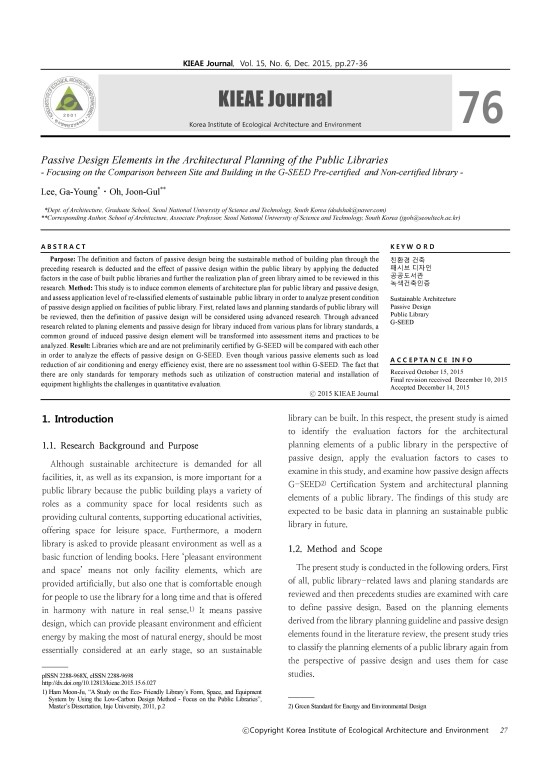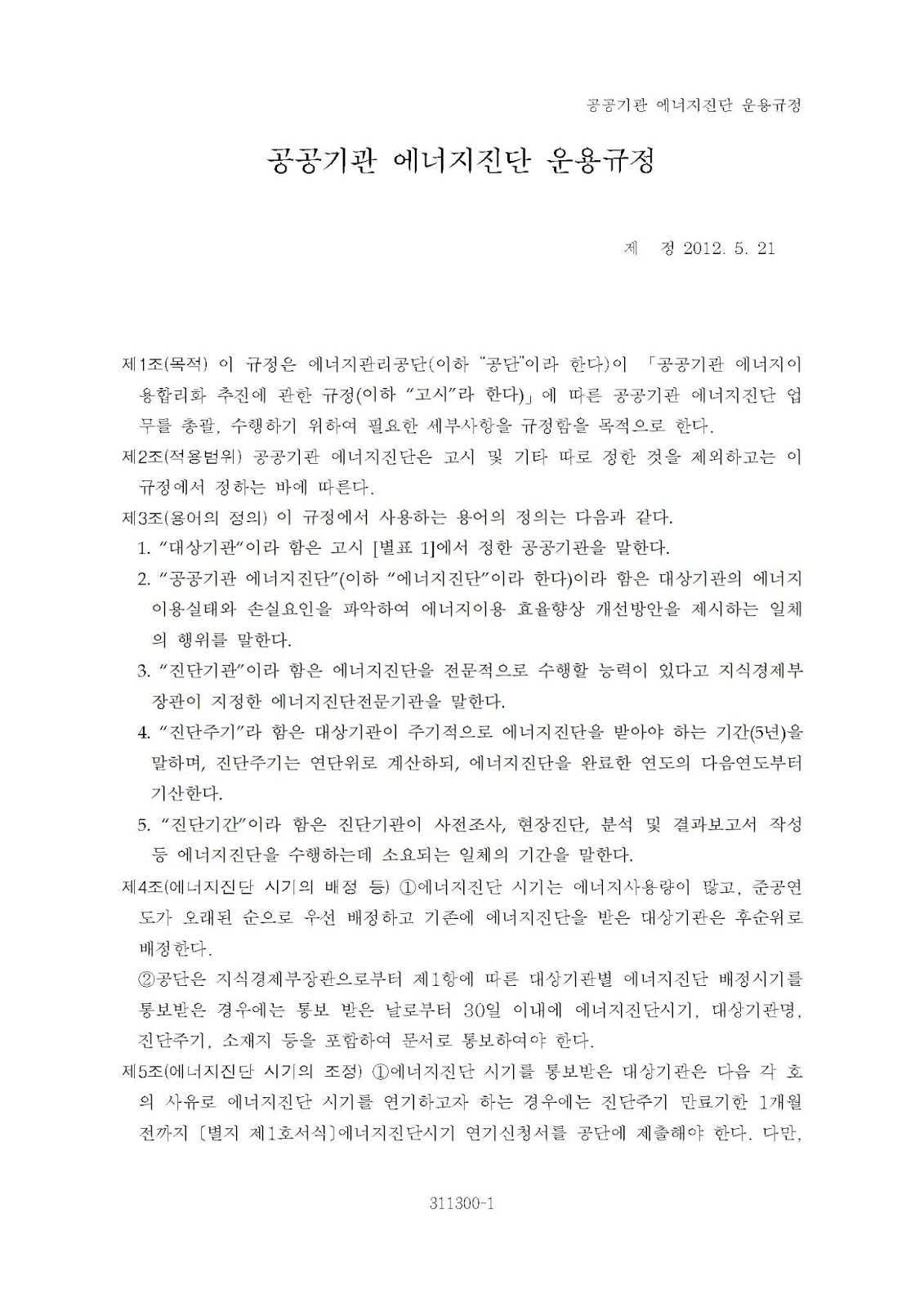Passive Design Elements in the Architectural Planning of the Public Libraries
Passive Design Elements in the Architectural Planning of the Public Libraries : Focusing on the Comparison between Site and Building in the G-SEED Pre-certified and Non-certified library
저자명 Lee Ga-Young, Oh Joon-Gul
문서유형
학술지 한국생태환경 건축학회 논문집 v.15 n.6 통권76호 (Dec. 2015) pp.27-36 1598-3730 KCI
발행정보 한국생태환경건축학회 |2015년 |한국 |영어
주제분야 공학 > 건축공학
서지링크 국회도서관 (청구기호 720 ㅅ198) , KISTI , 건축도시연구정보센터
<초록>
Purpose: The definition and factors of passive design being the sustainable method of building plan through the preceding research is deducted and the effect of passive design within the public library by applying the deducted factors in the case of built public libraries and further the realization plan of green library aimed to be reviewed in this research. Method: This study is to induce common elements of architecture plan for public library and passive design, and assess application level of re-classified elements of sustainable public library in order to analyze present condition of passive design applied on facilities of public library. First, related laws and planning standards of public library will be reviewed, then the definition of passive design will be considered using advanced research. Through advanced research related to planing elements and passive design for library induced from various plans for library standards, a common ground of induced passive design element will be transformed into assessment items and practices to be analyzed. Result: Libraries which are and are not preliminarily certified by G-SEED will be compared with each other in order to analyze the effects of passive design on G-SEED. Even though various passive elements such as load reduction of air conditioning and energy efficiency exist, there are no assessment tool within G-SEED. The fact that there are only standards for temporary methods such as utilization of construction material and installation of equipment highlights the challenges in quantitative evaluation.
Purpose: The definition and factors of passive design being the sustainable method of building plan through the preceding research is deducted and the effect of passive design within the public library by applying the deducted factors in the case of built public libraries and further the realization plan of green library aimed to be reviewed in this research. Method: This study is to induce common elements of architecture plan for public library and passive design, and assess application level of re-classified elements of sustainable public library in order to analyze present condition of passive design applied on facilities of public library. First, related laws and planning standards of public library will be reviewed, then the definition of passive design will be considered using advanced research. Through advanced research related to planing elements and passive design for library induced from various plans for library standards, a common ground of induced passive design element will be transformed into assessment items and practices to be analyzed. Result: Libraries which are and are not preliminarily certified by G-SEED will be compared with each other in order to analyze the effects of passive design on G-SEED. Even though various passive elements such as load reduction of air conditioning and energy efficiency exist, there are no assessment tool within G-SEED. The fact that there are only standards for temporary methods such as utilization of construction material and installation of equipment highlights the challenges in quantitative evaluation.

녹색건축인증 조성법' 및 '건물에너지 소비증명제'가 의무화되어 시행되고 있습니다.
저희 (주)한국녹색인증원은 '지속가능한 저탄소 녹색건축인증 기술연구소'의 전문기업으로 설립되어, 빠른 제도 변화와 변모하는 건설환경에 이바지하고자 합니다. (주))한국녹색인증원은 건축, 도시, 생태분야가 녹색건축물에 접목될 수 있도록 적절한 요소분석을 통해 에너지 절감형 건축, 자생적 생태환경, 온열환경, 빛환경의 면밀한 조사와 연구로 고객의 삶의 질 향상 및 더 나아가 인류의 존속성에 그 목적을 두고 있습니다. 한국녹색인증원은 친환경컨설팅 전문업체로 주택성능등급, 그린홈, 에너지소비총량제, 에너지성능지표검토서, 건물에너지효율등급, 장수명주택인증, CPTED, BF 인증 등 각종 친환경 건축물 인증 을 컨설팅 해드리고 있습니다. 녹색건축인증 의 선도기업이 되겠습니다.










(%EC%A0%9C19819%ED%98%B8)(20250501)001.jpg)
(%EC%A0%9C34657%ED%98%B8)(20240710)001.jpg)
댓글
댓글 쓰기